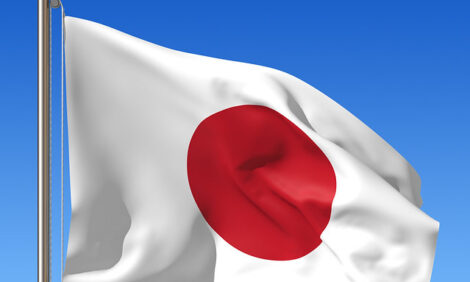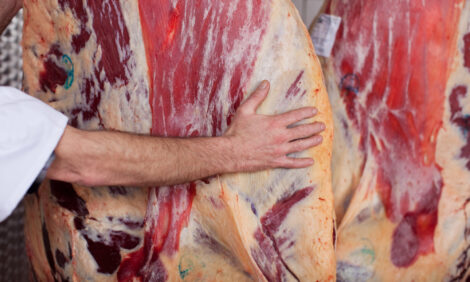



Russia, European Union Discuss Pork Import Ban
RUSSIA & EU - A high-level meeting took place yesterday, 18 February, between Russia and selected EU member states in a bid to end Russia's ban on all EU pig meat imports since the discovery of the African Swine Fever virus in Lithuania in January, writes Jackie Linden.The head of Russia's Federal Service for Veterinary and Phytosanitary Surveillance, Sergey Dankvert, has met the heads of veterinary services, industry unions and associations of France, the Netherlands, Denmark and Lithuania, according to Rosselkhoznadzor.
The meeting was also attended by Head of the Department of Veterinary measures sanitary, phytosanitary and veterinary measures Eurasian Economic Commission Valery Sitnikov and CEO of the North-West Meat Association Dmitry Pozdnyakov.
Opening the meeting, Mr Dankvert reported on his telephone conversation on 14 February with the Director General of the Directorate General of the European Commissioner for Health and Consumer Affairs, Paola Testori Coggi. She will visit Moscow at the end of this week.
Mr Dankvert said that the situation with the spread of African swine fever has deteriorated significantly with the reporting of the disease in Poland.
This development follows the forecasts by Rosselkhoznadzor regarding the speed and direction of the spread of infection, and the prevailing epizootic situation jeopardises not only the entire Baltic States and Poland, but also Germany, Czech Republic, Romania, Bulgaria, Slovakia and other countries of the region, as well as the Kaliningrad region of Russia and a number of territories of Ukraine and Belarus.
This situation calls for tough and systematic measures to curb the further spread of the disease, said Mr Dankvert. The Russian side is ready to assist the European Commission, from which it is awaiting proposals on EU regionalisation.
He added that, with its high levels of biosecurity standards common to CIS member countries, Ukraine has a distinct advantage over the EU states as a trading partner with Russia.
Head of the French veterinary service, Jean-Luc Angot, noted that the spread of African swine fever creates numerous and diverse problems - animal health, social and political, which relate to both exporters and importers, processors, etc. He described how France is monitoring for the virus, as well as systems to track and trace animals, raw materials and products. These comprehensive measures, he said, will ensure the proper level of biological security in France.
The Chief Veterinary Officer of the Netherlands, Christiane Brushko, noted that biosecurity measures undertaken by the veterinary services of the Netherlands, France, Denmark and Italy can assure the safety of pork products intended for delivery to the Customs Union.
Per Henriksen, head of the Veterinary Service of Denmark, stated that different EU countries have different risks to the spread of dangerous animal diseases. The main criterion for security in this case is the absence of the causative agent, the active monitoring and tracking system products.
Chief Veterinary Officer of Lithuania, Jonas Milius, said that his country has taken a number of measures to curb the further spread of African swine fever in Lithuania. The 700-kilometre-long border with Belarus has 15 border posts with equipment for disinfecting vehicles. Measures are also being taken to reduce the number of wild boar, with a plan to protect 5,000 hectares of forest in order to reduce the movement of the animals. This year, over 10,000 lab analyses of have been carried out on samples taken from hunted wild boar to test the presence of the African swine fever virus.
Executive Director of the North-West Meat Association, Dmitry Pozdnyakov, said at the meeting that the standards and controls currently in place in the European Union offer sufficient guarantees for pig meat exports, regardless of the any future action by the European Commission.






